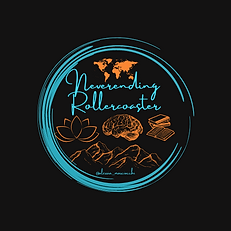The five niyamas: A practical guide to personal discipline in yoga
- Alessia Masciocchi
- Oct 20, 2025
- 4 min read
Discover how these ancient principles can transform your daily life

Do you practice yoga? But do you truly understand the ethical system that underlies this ancient discipline? Today, we explore the Niyamas (नियम [ˈnɪjəmə]): five principles of individual conduct that, according to Patañjali, represent the foundation of inner growth.
While the Yamas establish universal rules of ethical behaviour, the Niyamas focus on personal discipline. They're like an inner compass guiding us toward a more authentic and conscious life.
Why should this matter to you today?
In an increasingly hectic world, the Niyamas offer concrete tools to regain balance and direction. They're not dogmas to follow blindly, but rather invitations to reflection and daily practice.
Śauca—The purity that transforms
Śauca (शौच [ˈʃɔʊtʃə]) means purity, but the concept extends far beyond personal hygiene. It unfolds across three progressive levels:
The physical body
Keeping your body clean is the first step. Diet plays a key role here: yoga tradition recommends a vegetarian diet, not as a moral imposition, but because pure foods promote a clear mind. Food should nourish both body and spirit—simple, fresh, and prepared with love. Additionally, your practice space matters: a clean, quiet, harmonious environment facilitates concentration.
The mind
Even more important is purifying the mind from disturbing emotions. Anger, jealousy, and resentment are like dust on the soul's window—they cloud our vision of reality. Tradition suggests bhakti (devotion) as the "water" to wash away these impurities.
The intellect
The subtlest level concerns purifying the intellect (buddhi) from impure thoughts. This is where the study of the Self comes in, which "burns" like fire through false beliefs and illusions.
Practical result: Those who practice Śauca develop a natural inner luminosity, greater concentration, and the ability to focus the mind on a single object (ekāgra).
Santoṣa—The secret of contentment
Santoṣa (संतोष [sənˈtoːʂə]) is contentment, but not the passive acceptance of someone settling for less. It's an actively cultivated mental state—a conscious choice.
The unfocused mind
A dissatisfied mind is like a phone ringing constantly—impossible to concentrate on anything else. The practitioner (sādhaka) who has developed Santoṣa feels lacking in nothing, not because they have everything, but because they've learned to recognise the abundance already present.
Beyond inner conflict
Differences and comparisons create unconscious conflicts that fragment attention. Contentment arises when we stop struggling against reality and begin to dance with it.
Important note: This is not the hollow peace of renunciation, but the deep peace of someone who has found their center in something greater than themselves.
Tapas—The fire of discipline
Tapas (तपस् [ˈtəpəs]) derives from "tap" (to burn, shine, suffer, consume by heat). It's the ardent and constant effort toward a defined spiritual goal.
The three types of tapas
Kāyika (of the body): Includes practices like brahmacārya (continence) and ahiṃsā (non-violence). This isn't mortification, but intelligent discipline.
Vācika (of speech): Concerns how we speak—with truth, kindness, and usefulness.
Mānasika (of the mind): The most subtle—maintaining equanimity in joy and sorrow, acting without attachment to results.
True Tapas
Authentic tapas is working without selfish motives, with unwavering faith. It's not fanaticism, but intelligent dedication.
The fruits: physical and mental strength, courage, wisdom, integrity, and that simplicity which is the mark of true nobility.
Svādhyāya—Study that changes your life
Svādhyāya (स्वाध्याय [sʋɑːˈd̪ʱjaːjə]): "sva" (self) + "adhyāya" (study). It's the education of the Self with a capital S.
Reading your inner book
Those who practice Svādhyāya read their own "book of life" while writing and rewriting it. There's a shift in perspective: you begin to see all of creation as an opportunity for worship rather than enjoyment.
Universal study
Just as philology is the science of languages (not one specific language), yoga is the science of religions. Studying sacred texts from different traditions isn't about syncretism, but about better understanding your own faith.
Concrete practice: Dedicate regular time to studying texts that nourish your soul, in a pure and quiet place.
Īśvara Praṇidhāna—The art of surrender
Īśvara Praṇidhāna (ईश्वरप्रणिधान [iːˈʃvərə prəɳɪˈd̪ʱaːnə]) is the dedication to the Lord of all your actions and your will.
Beyond "I" and "Mine"
In true love (bhakti) there is no room for "I" and "mine." When these feelings vanish, the individual reaches full spiritual maturity.
The empty mind, the full heart
When the mind is emptied of desires for personal gratification, it must be filled with divine thoughts. Just as the moon is full when turned toward the sun, the individual soul experiences fullness (pūrṇatā) when it turns toward the Divine.
Actions as mirrors
Actions reflect personality more than words do. Those who practice Īśvara Praṇidhāna have learned the art of dedicating every action to the Divine, thereby reflecting their inner divinity.
How to begin in daily life
You don't need to revolutionise your life overnight. Try this:
Śauca: Start your day with a mindful shower and a light breakfast
Santoṣa: Each evening, find three things to be grateful for
Tapas: Choose one small daily discipline and maintain it for 30 days
Svādhyāya: Dedicate 10 minutes daily to reading an inspiring text
Īśvara Praṇidhāna: Before important actions, pause and ask yourself, "How can I serve something greater than myself?"
Conclusion
The Niyamas are not moralistic rules but practical tools for a more authentic and meaningful life. Like ancient lighthouses in modern fog, they guide us toward our true nature.
The beauty of these teachings is their universality—they speak the language of the human heart, beyond cultures and beliefs. Start where you feel most comfortable and let practice show you the way.
What do you think? Have you ever experienced any of these principles in your own life? Don't be shy—share your thoughts in the comments!




Comments